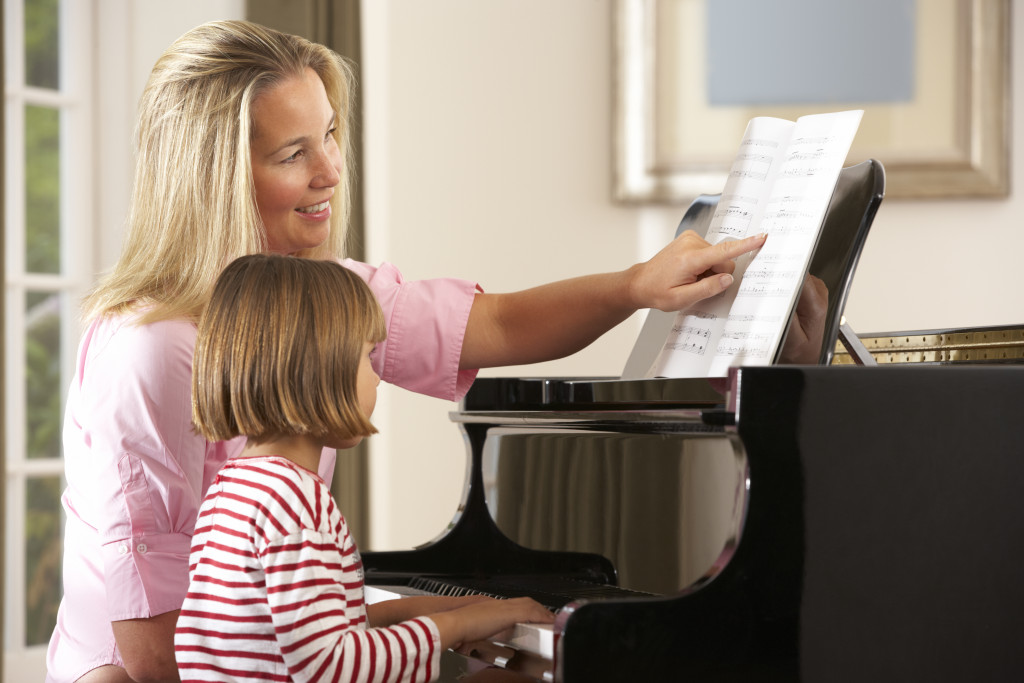As a parent, you may not think you have the time or the know-how to help a child develop their musical skills and interests. Most parents are not music educators and may feel like this is an area where they cannot help their children. However, there are some simple things that you can do to help foster a love of music in children. By taking the time to expose them to different types of music and providing opportunities for them to experiment with making their own music, you can lay the foundation for a lifelong appreciation of music.
1. Expose them to different types of music
One of the best ways to help a child develop an interest in music is to expose them to as many different genres and styles as possible. Take them to concerts, play different types of music around the house, and let them listen to whatever they want on their own time. The more they hear, the more they will be able to appreciate the beauty and complexities of music.
Your child may have a natural affinity for a particular type of music, and that’s okay! If they are only interested in listening to classical music or rock n’ roll, for example, that’s perfectly fine. Just make sure to expose them to different music genres to find what speaks to them. Don’t force them to listen to anything they don’t like, as this may turn them off from music altogether.
Some parents also play musical instruments in front of their kids at home. This is a great way to show your child how one can create music if you are a musician. Seeing you play an instrument may inspire them to want to learn how to play one themselves.
2. Provide opportunities for them to experiment with making their own music
Another great way to help a child develop an interest in music is to provide opportunities to experiment with making their own music. This could be something as simple as banging on a drum set or playing with a toy xylophone. Simple percussion instruments are a great way for children to explore making music on their own.
If you have a keyboard or piano at home, encourage your child to sit down and experiment with the different sounds it can make. They may not be able to play a proper song yet, but that’s okay! Just let them explore and have fun with it. Deal with the initial terrible music-making; soon, they will impress you with their tunes.
If they are interested in a particular instrument, consider signing them up for lessons. A child who can pick up a beat can benefit from drum lessons, while a child who is constantly humming tunes can excel in piano or guitar lessons. The important thing is that they are given a chance to express themselves musically in whatever way they see fit. You may be surprised by the hidden musical talents of your child!

3. Encourage them to attend live performances
While listening to music at home is suitable, there is nothing like experiencing live music. Whether it’s a school concert, a play, or a professional performance, attending live music events is a great way to develop a love and appreciation for music. Children are often more engaged when they see live music, which can be a great way to get them interested in different types of music.
While watching, encourage your child to pay attention to the different instruments being played and how the music makes them feel. You could even start a conversation about what they liked and didn’t like about the performance afterward. This is a great way to get them thinking critically about music and to develop their own taste. If they enjoy the experience, they are more likely to want to see more live music in the future.
4. Encourage them to dance
Dancing is an excellent way for children to express themselves and get moving. It’s also a lot of fun! Although your child doesn’t need to be a dancer to enjoy music, it can help them appreciate a song’s rhythm and beat. Playing music and dancing around the house is a great way to bond with your child and to get them moving their bodies.
If your child is interested in learning how to dance, there are many different types of classes available. Many schools offer ballet or tap classes for young children. These classes can help them to develop their coordination and to learn how to follow a beat. Dance classes are also an excellent way for children to socialize and make new friends.
By taking the time to expose children to different types of music and providing opportunities for them to experiment with making their own music, you can lay the foundation for a lifelong appreciation of music. And who knows, you may even end up with a musical prodigy! Just have fun with it and enjoy the process. After all, music is supposed to be enjoyable!

